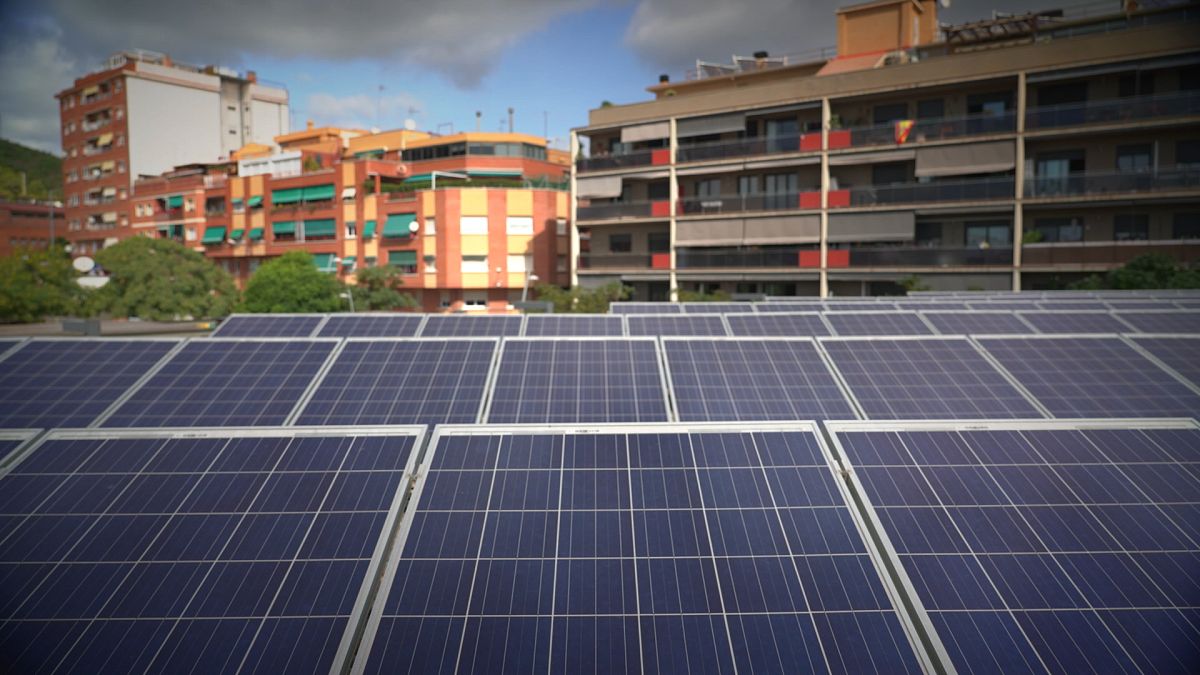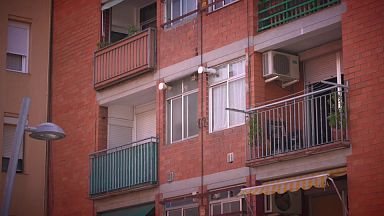In this episode, Smart Regions looks at a transformational European project saving huge amounts of energy. It's led to several buildings in a district of the Catalan city of Viladecans being renovated. Residents play an active role in managing energy. They also have their own digital currency.
In this episode of Smart Regions we take a look at a transformational European project that's saving huge amounts of energy. Several buildings in a district of the Catalan city of Viladecans have been renovated to allow residents to play an active role in managing their energy. They also have their own digital currency.
In Spain, 17 percent of homes are energy inefficient. But just south of Barcelona, the city of Viladecans has recently undergone a huge transformation. The authorities have renovated an entire neighbourhood to make the homes there more energy efficient.
The project, called Vilawatt, first began in the densely populated district of Montserratina. The goal - to modernise poorly insulated homes that were mostly put up during the 1970s.
Despite some delays, due to the pandemic, the work has completely changed Francisca’s building.
“In winter, it's noticeably not so cold inside while in the summer it's not so hot. And the type of glazing they’ve used has also made a big difference in terms of sound,” she says.
Windows, doors, fences and blinds have all been changed in three buildings. In addition to internal and external insulation, the city has also installed photovoltaic panels.
Pere Gutiérrez Almany, coordinator of the project, says the buildings have been transformed into “energy communities” capable of sharing power.
“When excess energy is produced, it’s possible to connect to different parts of the district within a radius of 500 metres. We can communicate with different parts of the community and share the energy with other neighbourhoods, even if they are not directly connected to the Vilawatt installation.’’
The cost of the project was 5.3 million euros. 80 percent of which came from the EU’s cohesion policy.
Vilawatt is the result of a public-private partnership. Nearly 600 residents have already been able to benefit from the local energy operator’s green offer. An important element of the initiative is that it seeks to empower residents by providing advise and help with their contracts and bills.
Locals, in collaboration with the companies, also have a say in how the project is implemented.
Residents are also rewarded for the energy they save. The project has already reduced consumption by an average of 30 percent. These savings are then transformed into a virtual currency, also called Vilawatt- which is usable in more than 400 businesses across the city, such as this baby clothing and accessories store.
“There are people who wouldn’t ordinarily come to our shop but they come because they have Vilawatt currency. And you don't need to have a card or physical money on you. You can pay with an app on your mobile. We get around… one, two, three or four sales a day with the Vilawatt currency,” explains the shop's co-owner Sonia.
Here, the energy debate is now part of everyday life, thanks to everyone's involvement.

